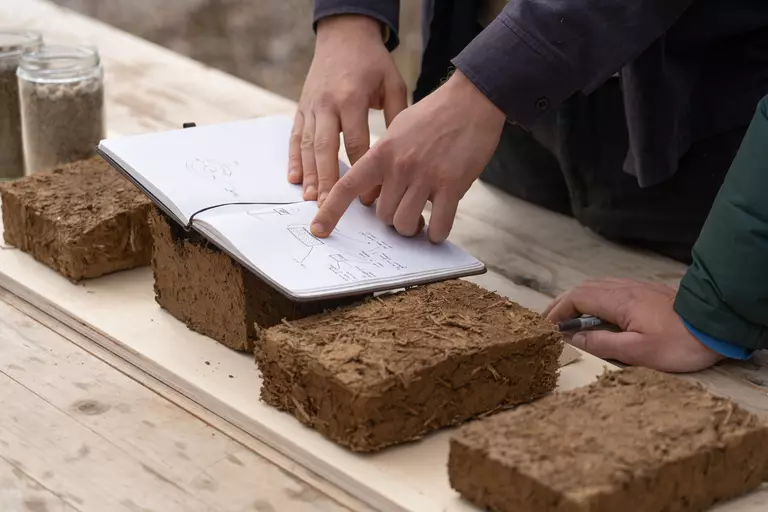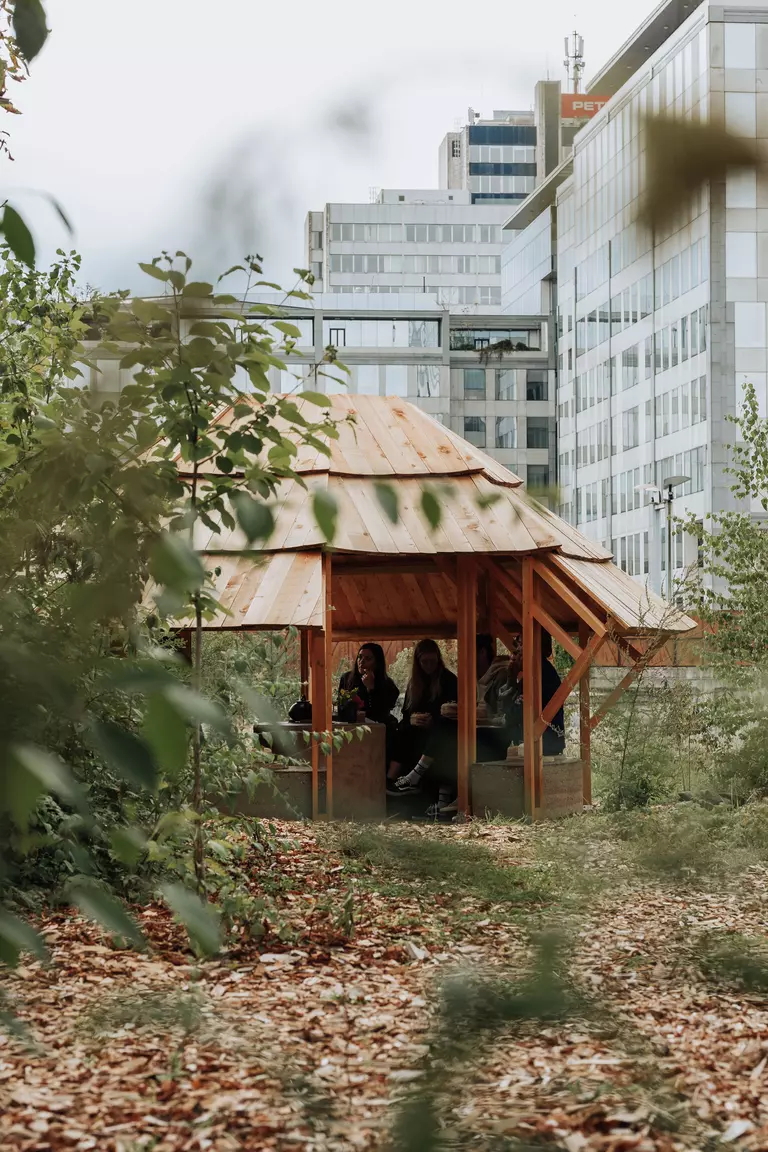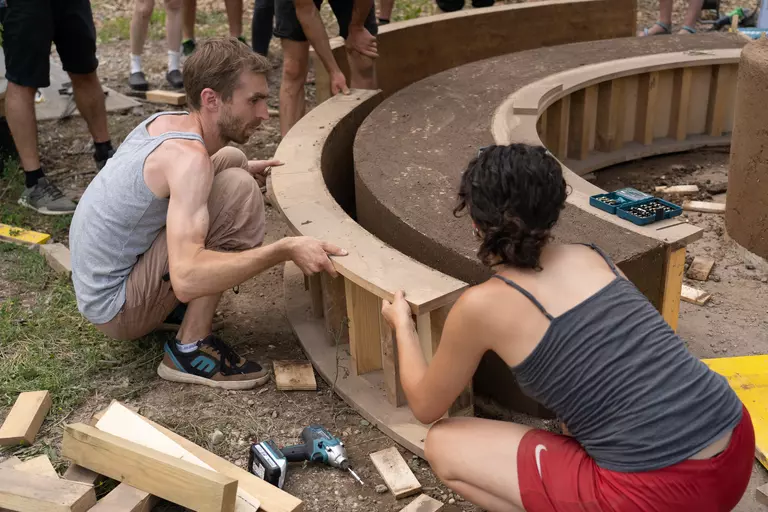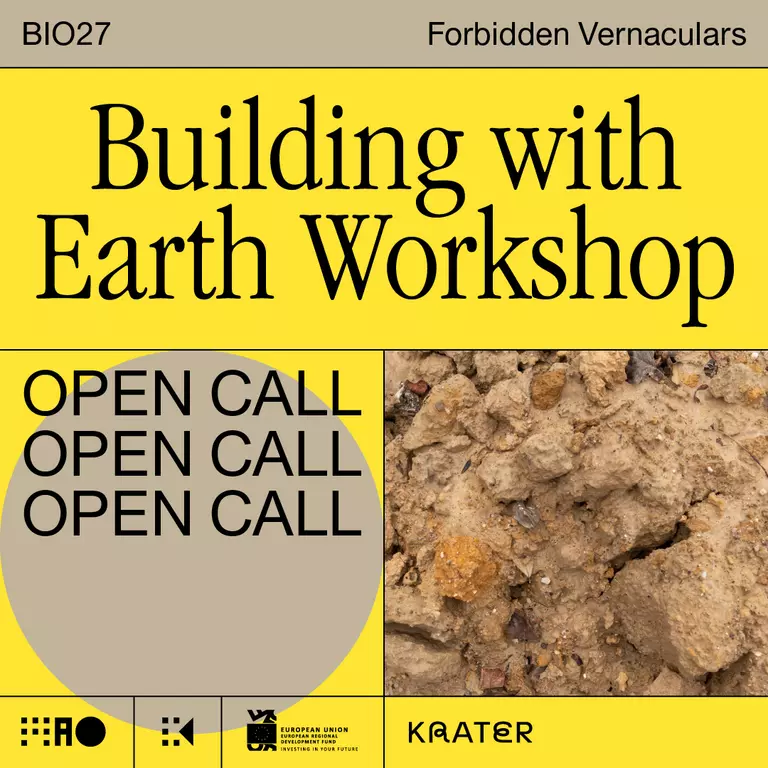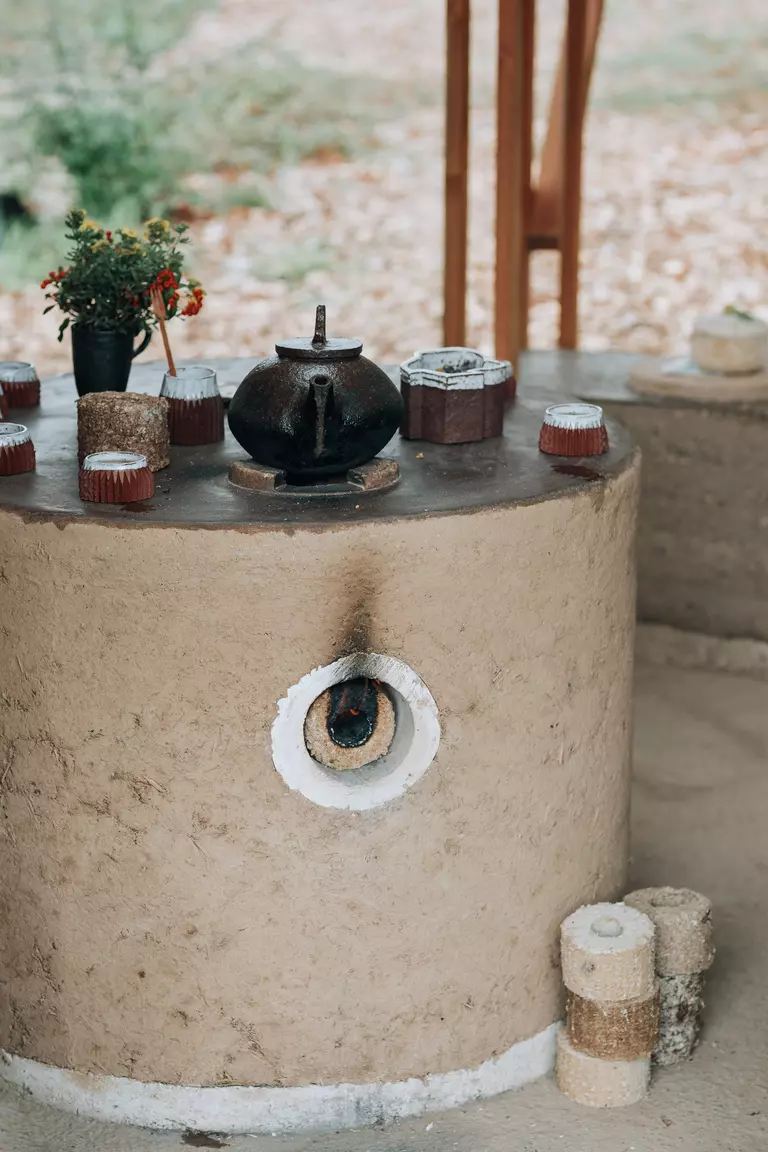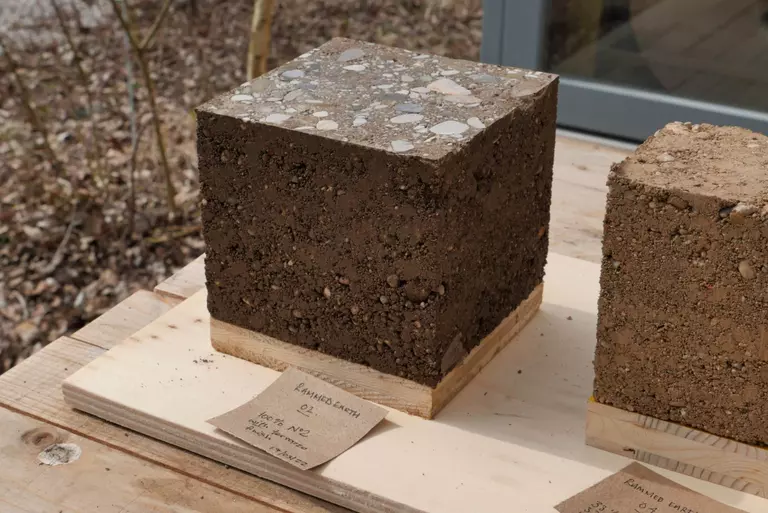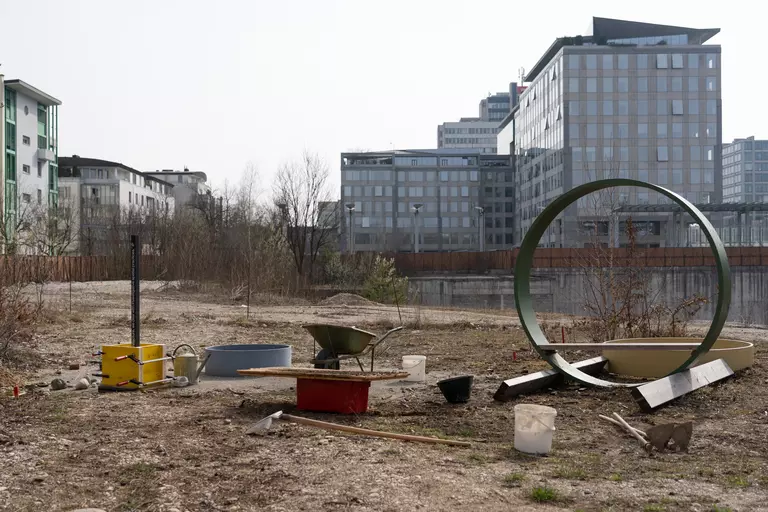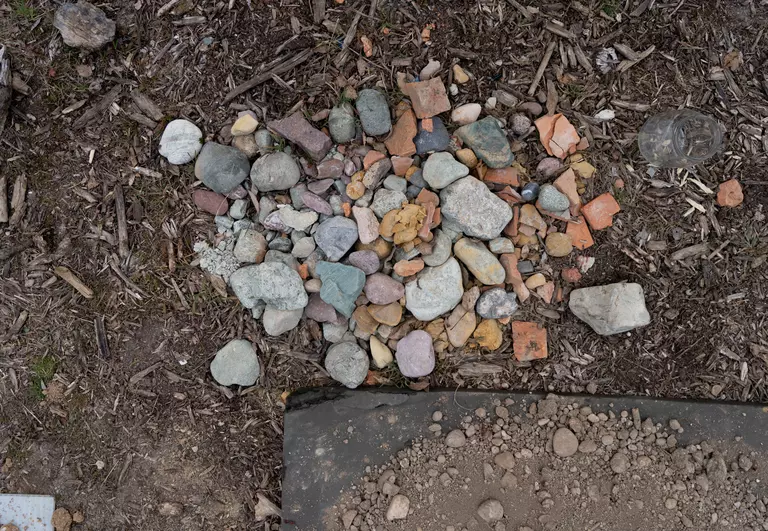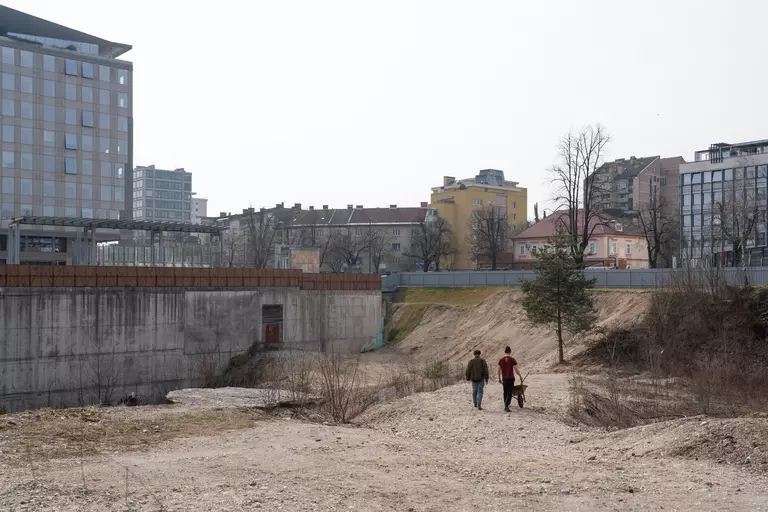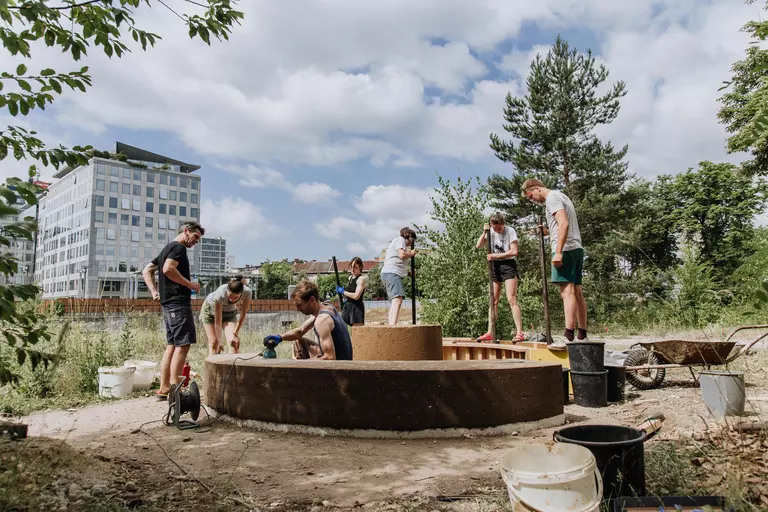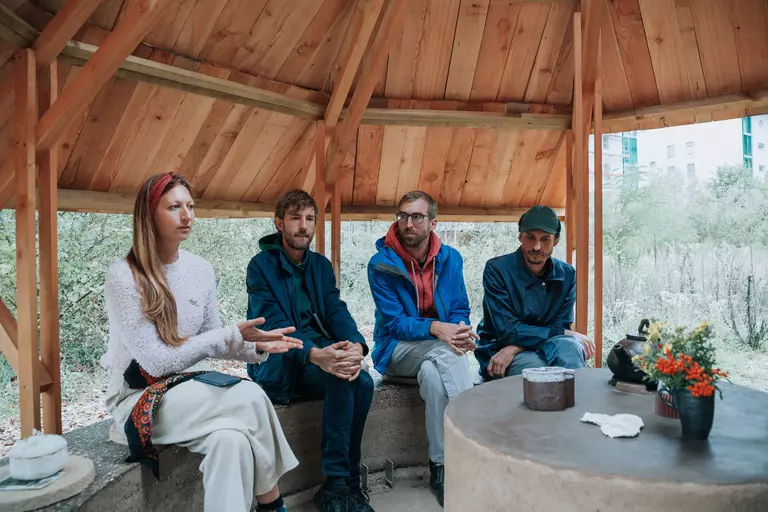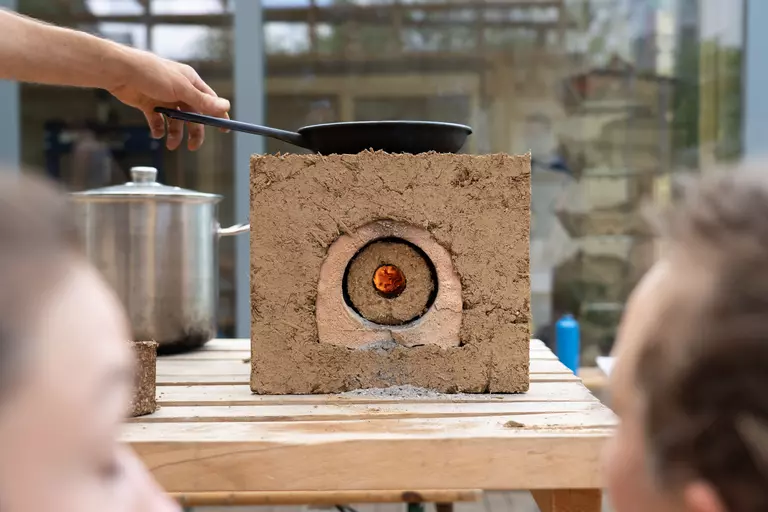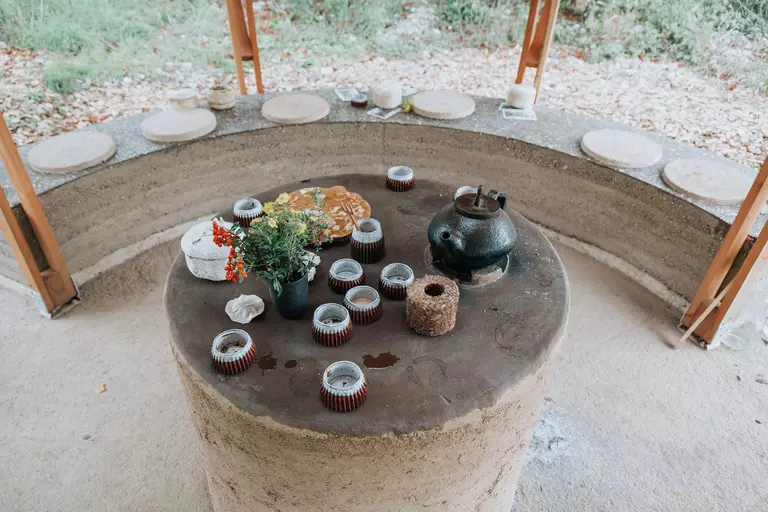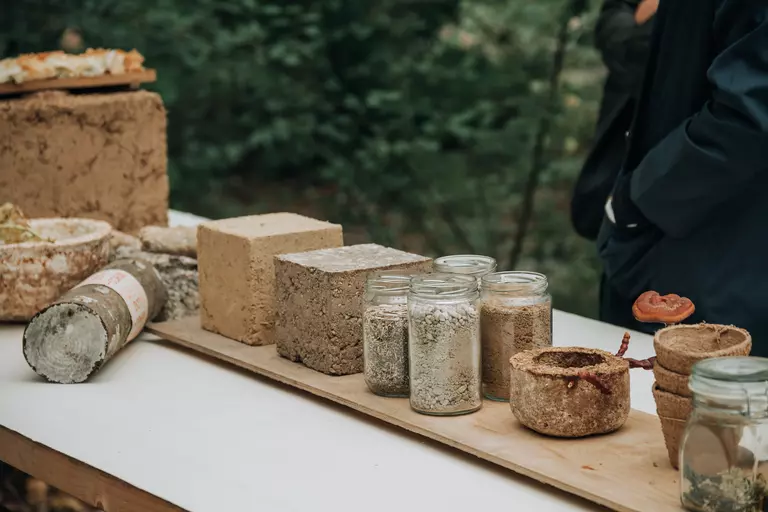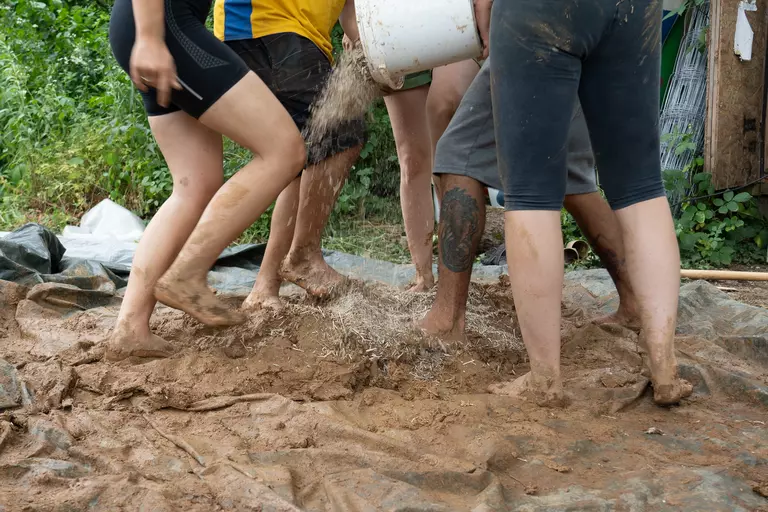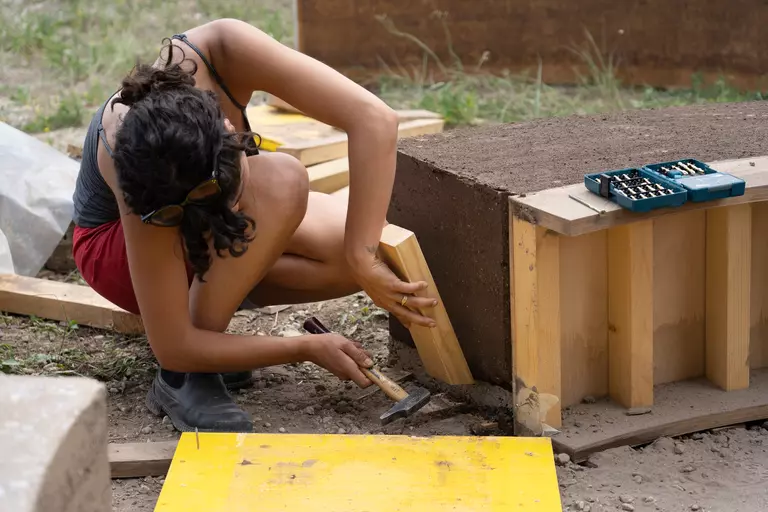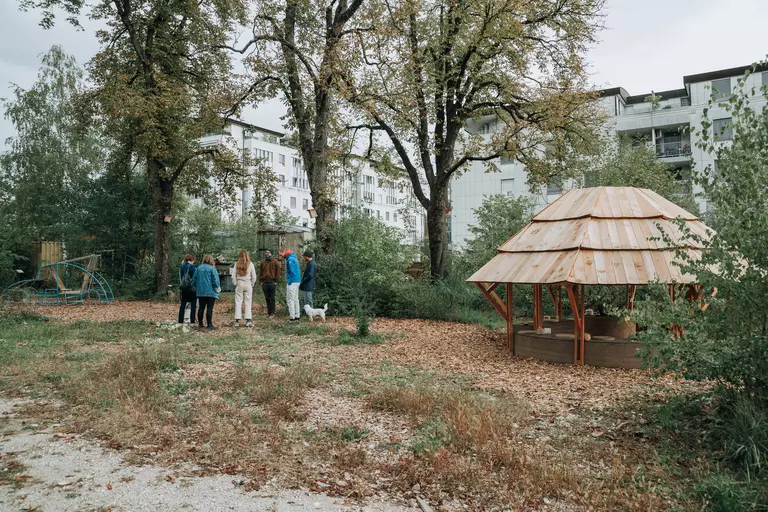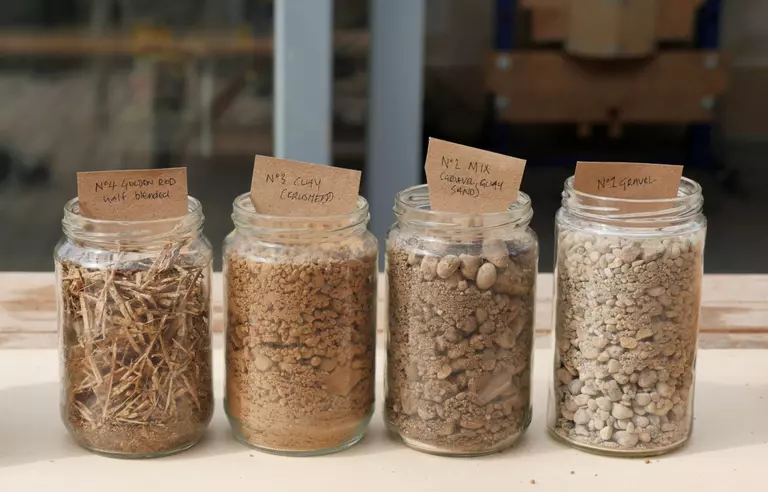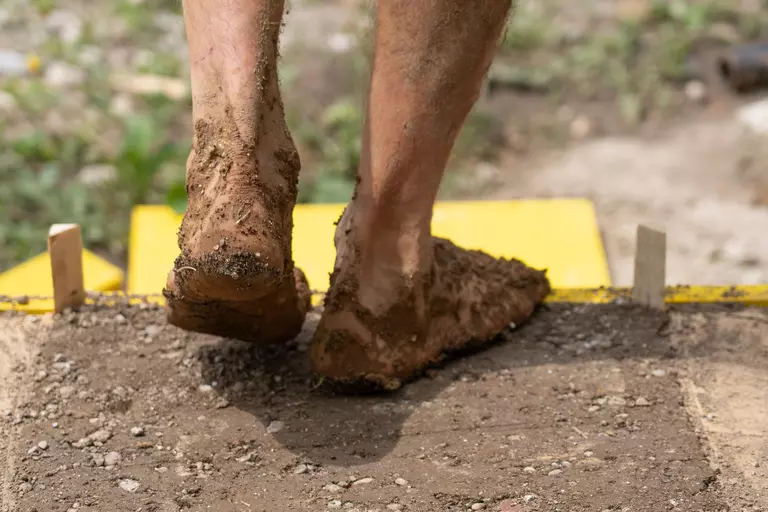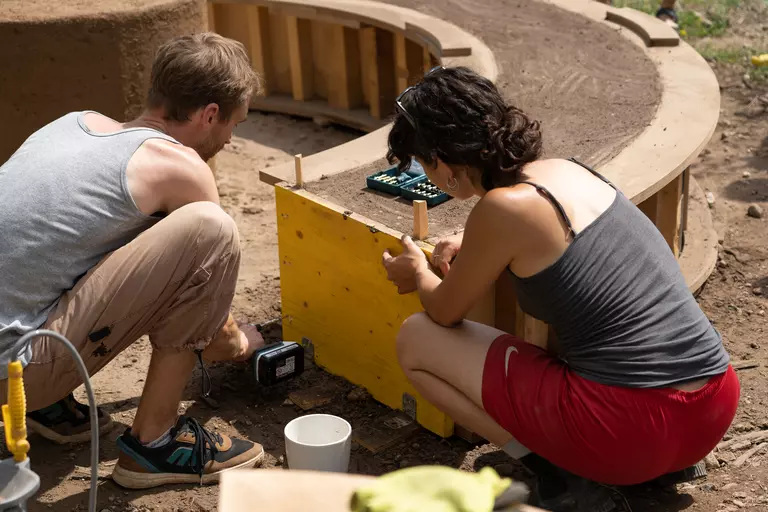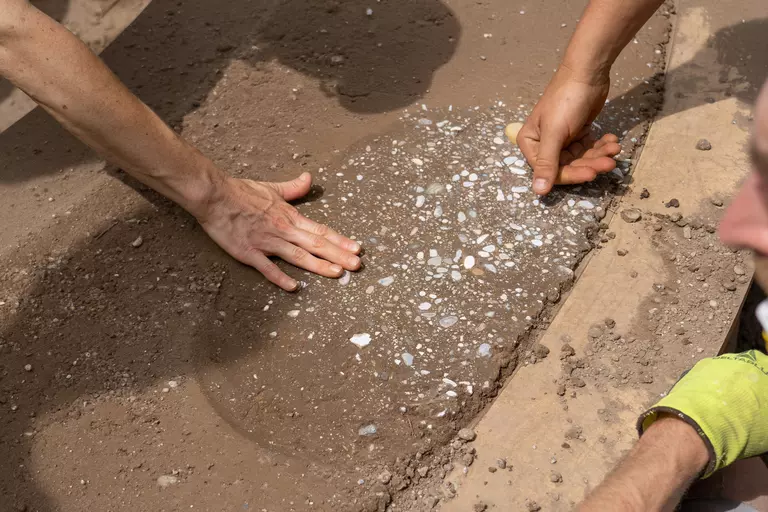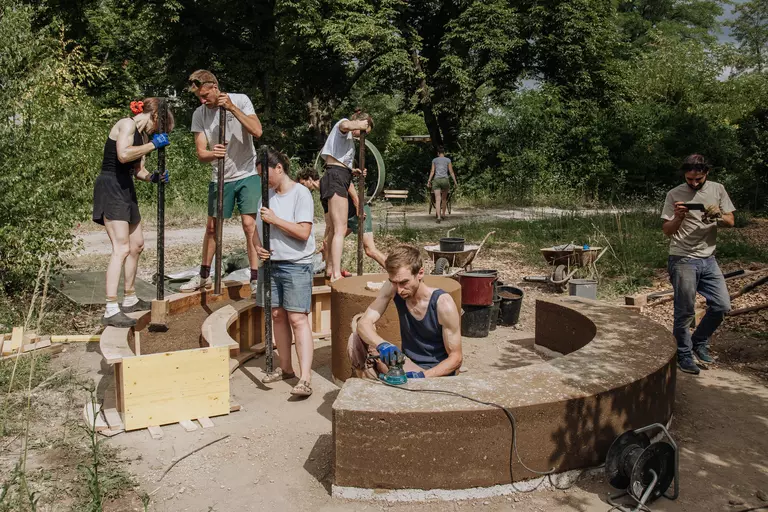- 20.06.22 24.06.22
Forbidden Vernaculars Tea Pavilion
For BIO27, the 27th Biennial of Design, team Krater posed a question: How could Krater become a landscape-based forum to discuss the accessibility of building and using the sustainable materials in Slovenia, where these practices are greatly stifled by costly certification processes?
Krater, in dialogue with Atelier LUMA and BC, researched locally sourced building materials and local earth architecture - discovering the rich resources of the rewilded site enabled material experimentation with wild clay, invasive plants and gravel as construction materials for the building. The outcome was a tea pavilion intended as a place to generate discussion on legislative and administrative restrains of building with local natural materials.
The tea pavilion's 'foundations' were built at the international early summer workshop for building with rammed earth. The workshop had a special attention on two different techniques of building with earth: rammed earth (gravel + clay) and building with cob (fibers + clay). All materials were sourced from the pit itself, showcasing the use of local materials in architecture and design. In the summer, another workshop was organised, where the wooden shingles roof was constructed.
The new space hosts assemblies and tea drinking ceremonies with both practitioners and decision-makers who, during the round table, experience a performative tea ceremony with the herbal tea in wild clay vessels sourced from the urban site. Discussing the legal, social and ecological implications of designing with local materials the aim is to generate a fresh start in making these forbidden practices part of the vernacular again.
For more information go to the website of BIO27 here.
